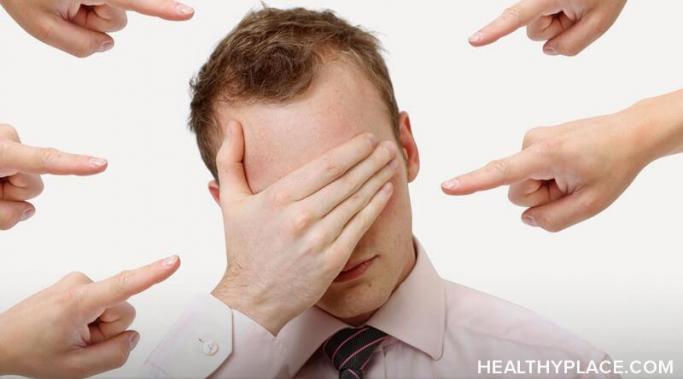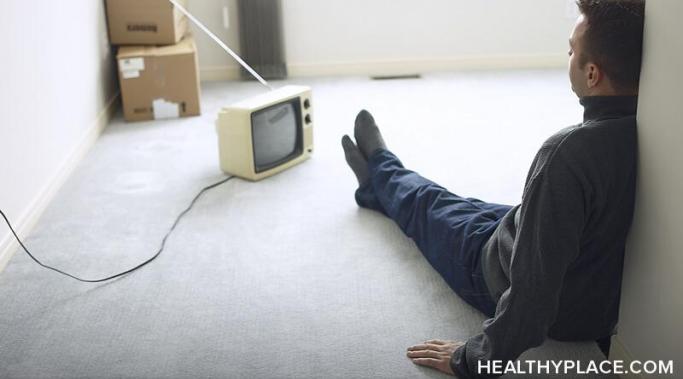The effect of exercise on mental health and mental illness isn't what most people think. One of the go-to remedies for those who don’t understand mental illness is to suggest those who have a mental illness exercise as if it’s a cure. It’s often used in the argument that pharmaceuticals are bad by saying regular exercise is the only real cure. While being active can have a positive effect on some people, it’s still not a cure for mental illnesses. Because of that, the suggestion of exercise to fix them is very much a notion of stigma because of its oversimplification and misunderstanding of mental illness.
Stigma and Society's Perception of Mental Illness
Dehumanizing people with addiction is something many people do without thinking about it. For example, when someone says “addict,” there are probably a few images that readily come to mind and descriptors to go along with those images — crackhead, drunkard, nasty, degenerate, the list goes on. This is the stigma of mental illness at play as preconceived notions and dated ideas of what it means to have an addiction take over our perception. When we let that happen, we’re dehumanizing people with addiction. This happens with all kinds of addiction, too.
Using mental illnesses as insults is invalidating and harmful. These days, it’s hard to go far without coming across the topic of mental health and mental illness. Considering it’s still such a taboo subject that people shy away from, this seems like something we should be rejoicing over as advocates and activists — and I would, but for the fact that it’s still being spoken of in negative, stigmatizing words. Although people are mentioning mental illness seemingly more and more, all it’s doing it adding to the already existing stigma since mental illness is being used to insult people.
No one can diagnose an eating disorder by looking at someone's body type; yet, when we think about eating disorders, there are probably two images that pop into our minds: Someone who’s painfully thin and another person who’s largely overweight. The problem with that kind of thinking is instead of seeing eating disorders as mental illnesses, we see them as body types. As harmless as it may seem, if you try to diagnose an eating disorder by body type, it is a form of mental health stigma.
While social media can be a great outlet for raising mental health awareness, oversharing your mental illness struggles may attract unwanted stigma. Usually, this comes from people who already have preconceived, stigmatizing ideas about mental illness. Even so, oversharing your mental illness details online can actually generate more stigma. It turns out there may be a fine line between raising mental health awareness and oversharing your mental illness struggle.
News coverage that stigmatizes mental illness often occurs after events like mass shootings and other tragedies. The reporters often bring up mental health and how that may have played a part in what happened. Whether or not there is even any initial evidence of mental illness, the fact that someone could commit such an atrocity invokes assumptions of mental instability. People then tend to associate that idea with mental illness as a blanket statement, despite how complex and different individual mental illnesses are. With these conversations inevitably comes misinformation and stigma, and when these news stories saturate our social media and even traditional media sources, it can be tough to contend with as someone with a mental illness. News coverage that stigmatizes mental illness creates problems for society and individuals, and here are two ways it happens.
Stigma from within the mental health community is the last place I expected to come across stigma for mental illnesses. Last Wednesday, I went to a mental health event that was about mental illness in general, as opposed to focused on one kind or another. I was at the mental health fair, called MindFest, with the Canadian BFRB Support Network (CBSN), Canada’s only non-profit geared towards raising awareness and providing resources for people with body-focused repetitive behaviors (BFRBs). Since BFRBs are a lesser-known group of disorders, I expected questions, but I didn’t expect stigma from within the mental health community -- the people in attendance.
Although I understand the huge amount of frustration that comes from responding to mental health stigma, I also feel that there are two ways to handle irritation. One way is getting mad, worked up, and starting to sling names, threats, and sarcasm around like there’s no tomorrow. The other is to approach these stigmatizers with a level head and facts, and knowing when to disengage. In the world of the Internet, it’s pretty easy to go about the former, but in this blog, I’m going to explain why I think the latter is a much more effective way to respond to mental health stigma.
Clickbait can increase mental health stigma. In the fast-paced world of the Internet, where everyone is vying for even a moment of attention, clickbait has become the way to get people to come to your page, even for sensitive matters such as people’s personal stories of mental illness. Unfortunately, sensationalism takes over and stories get warped to where they sometimes don't even reflect reality. In stories of mental illness, sensationalistic clickbait contributes heavily to stigma.
People’s notions of what someone with a mental illness looks like includes ideas of how they think a person with mental illness should behave. The idea that you can tell someone with a mental illness by looking at them comes from both misunderstanding and stigma. But, as more and more people discuss realities like high-functioning mental illness and so forth, people are beginning to broaden their understanding. However, we need to delve deeper into the idea that someone can look like they have a mental illness. The fact is, mental illness looks different in everyone, and I don’t mean simply from one illness to another, but within the same illness.









